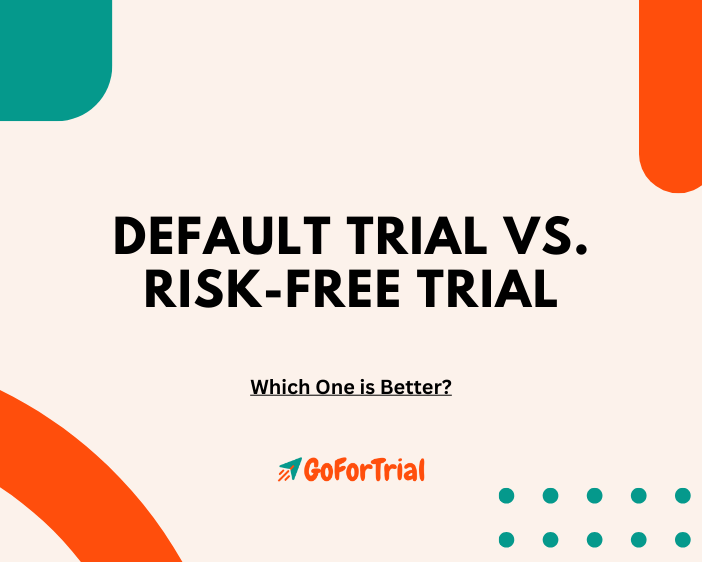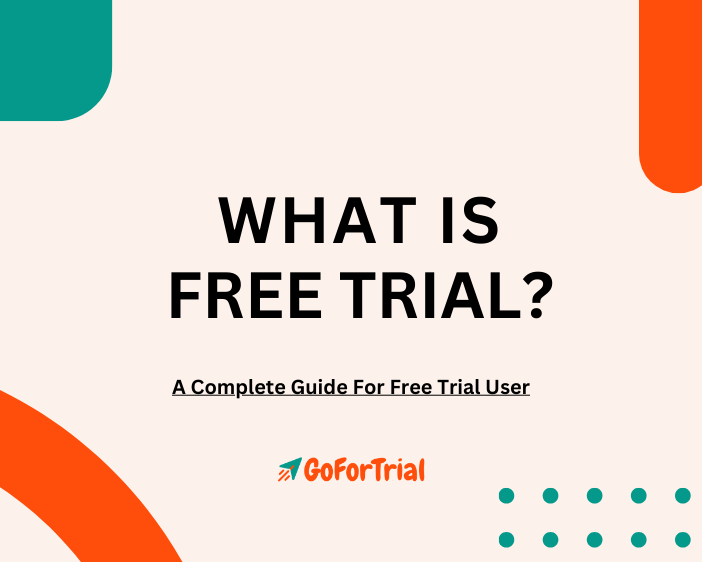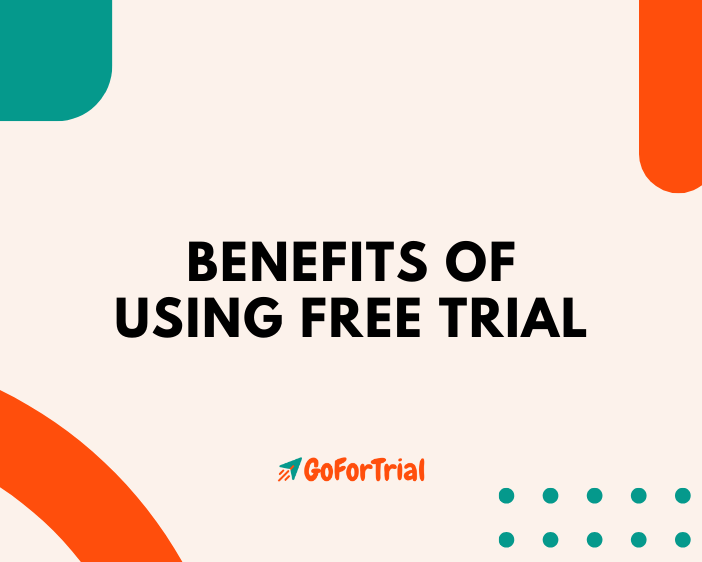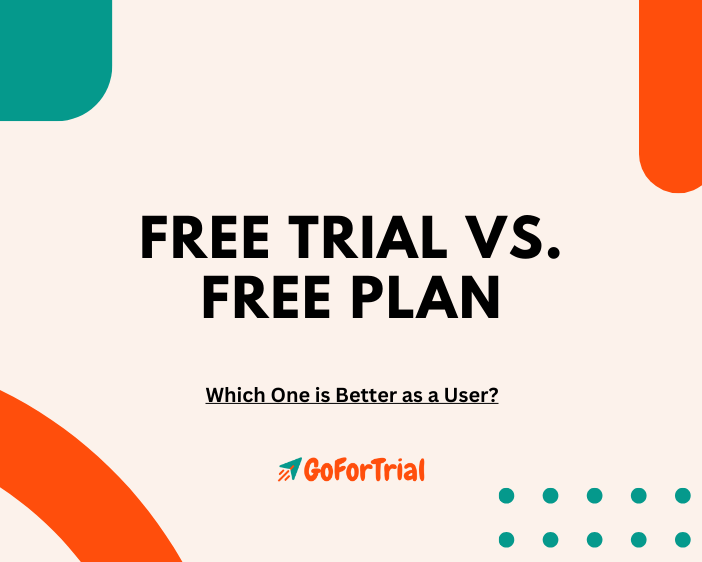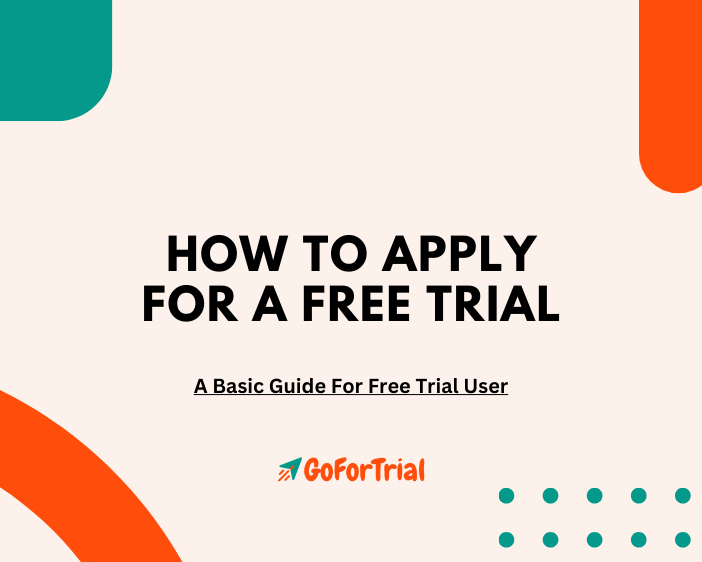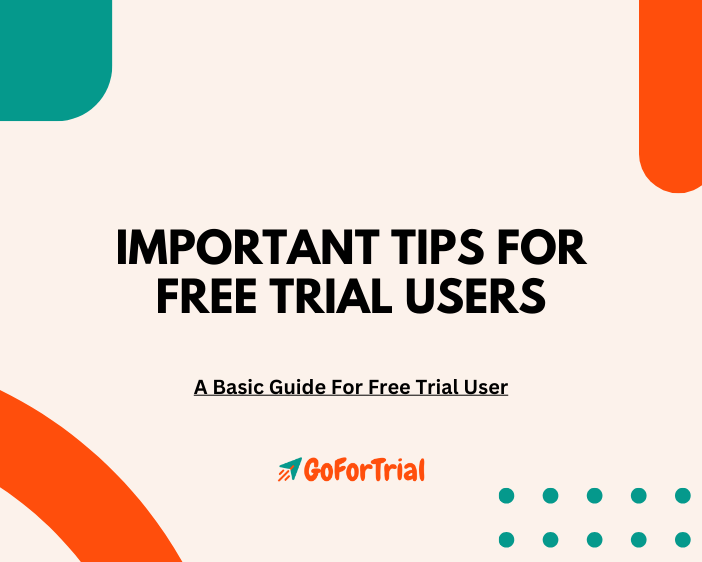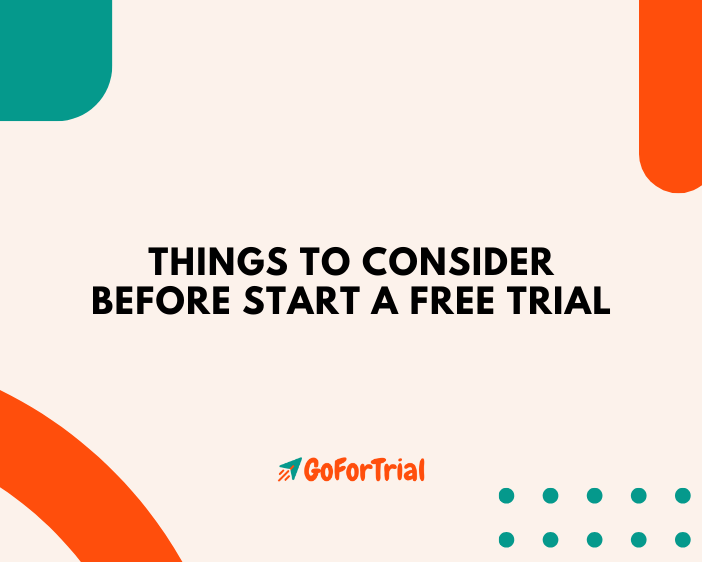
Free trials are a fantastic way to explore new products or services without committing financially upfront. From streaming platforms to software tools and subscription services, free trials offer users the chance to test the waters and see if a particular offering suits their needs.
However, before diving headfirst into any free trial, it’s essential to consider several key points to ensure a smooth and rewarding experience.
In this guide, we’ll discuss the critical factors users should keep in mind before starting any free trial, from understanding the terms and conditions to evaluating the product’s suitability and protecting personal information.
Read the Fine Print:
Before clicking “Sign Up” for a free trial, take the time to read and understand the terms and conditions thoroughly. Pay attention to important details such as the trial duration, cancellation policy, automatic renewal terms, and any restrictions or limitations that may apply.
Understanding these terms upfront can prevent surprises and help you make informed decisions about whether to proceed with the trial.
Evaluate Your Needs:
Consider whether the product or service offered through the free trial aligns with your specific needs and requirements.
Ask yourself questions like: What problem am I trying to solve? Will this product or service address my needs effectively? Do I have the time and resources to fully explore and evaluate the offering during the trial period? Taking the time to assess your needs beforehand can help you choose free trials that are most relevant and valuable to you.
Set Reminders:
Free trials often come with a set duration, after which you may be automatically enrolled in a paid subscription plan if you don’t cancel in time.
To avoid unintentional charges, set reminders to cancel the trial before it ends if you decide not to continue with the service. Consider adding reminders to your calendar or setting alarms on your phone to ensure you don’t miss the cancellation deadline.
Explore Features and Functionality:
During the free trial period, take advantage of the opportunity to explore the product’s features and functionality fully. Dive into different aspects of the offering, test out various features, and see how well it meets your needs and expectations.
Pay attention to usability, performance, and any unique capabilities that differentiate the product from alternatives. The goal is to gain a comprehensive understanding of what the product can offer you.
Assess Customer Support:
Evaluate the level of customer support provided by the company offering the free trial. Can you easily reach customer support representatives if you encounter issues or have questions during the trial period? Are there self-help resources, such as FAQs or user guides, available to assist you?
Responsive and helpful customer support can make a significant difference in your overall trial experience and future satisfaction with the product.
Consider the Cost:
While free trials are, well, free, it’s essential to consider the potential costs associated with the product or service beyond the trial period. Take the time to research the pricing plans and subscription options available once the trial ends.
Consider factors such as monthly or annual fees, additional charges for premium features, and any discounts or promotions that may apply. Understanding the full cost of ownership can help you make informed decisions about whether to continue with the service beyond the trial period.
Protect Your Personal Information:
Be cautious when providing personal information, such as your email address or payment details, to sign up for a free trial. Ensure that the company offering the trial has robust privacy and security measures in place to protect your data.
Consider using a dedicated email address or a virtual credit card for signing up for free trials to minimize the risk of spam or unauthorized charges. Additionally, review the company’s privacy policy to understand how your information will be used and whether it will be shared with third parties.
Compare Alternatives:
Before committing to a free trial, take the time to explore alternative products or services that address similar needs.
Compare features, pricing, user reviews, and overall value to determine which option best suits your requirements. Keep an open mind and consider multiple options to ensure you find the right fit for your needs and preferences.
Seek Recommendations:
Don’t hesitate to seek recommendations from friends, family, or online communities before starting a free trial. Reach out to individuals who have experience with the product or service you’re interested in and ask for their insights and opinions.
Hearing from others who have firsthand experience can provide valuable insights and help you make more informed decisions about whether to proceed with the trial.
Trust Your Instincts:
Ultimately, trust your instincts when deciding whether to start a free trial. If something feels off or if you have reservations about the offering, it’s okay to walk away and explore other options. Your intuition can be a valuable guide in determining what’s right for you, so listen to it and make decisions that align with your needs and preferences.
Conclusion:
Starting a free trial can be an excellent way to explore new products or services and determine their suitability for your needs. By considering these key points before diving into any free trial, you can ensure a more informed and rewarding experience, minimize risks, and make the most of your trial period.
So, the next time you’re tempted by a free trial offer, remember to read the fine print, evaluate your needs, set reminders, explore features, protect your personal information, compare alternatives, seek recommendations, and trust your instincts. Happy trialing!


